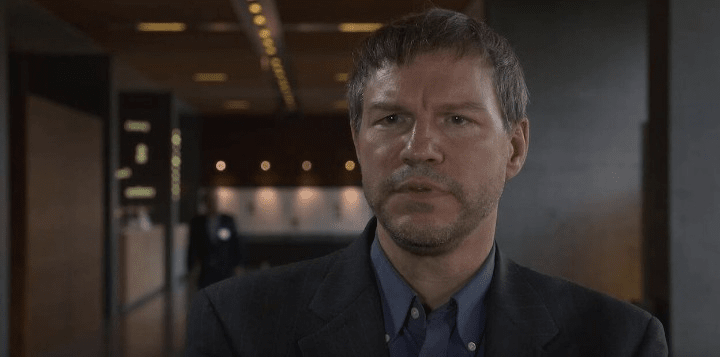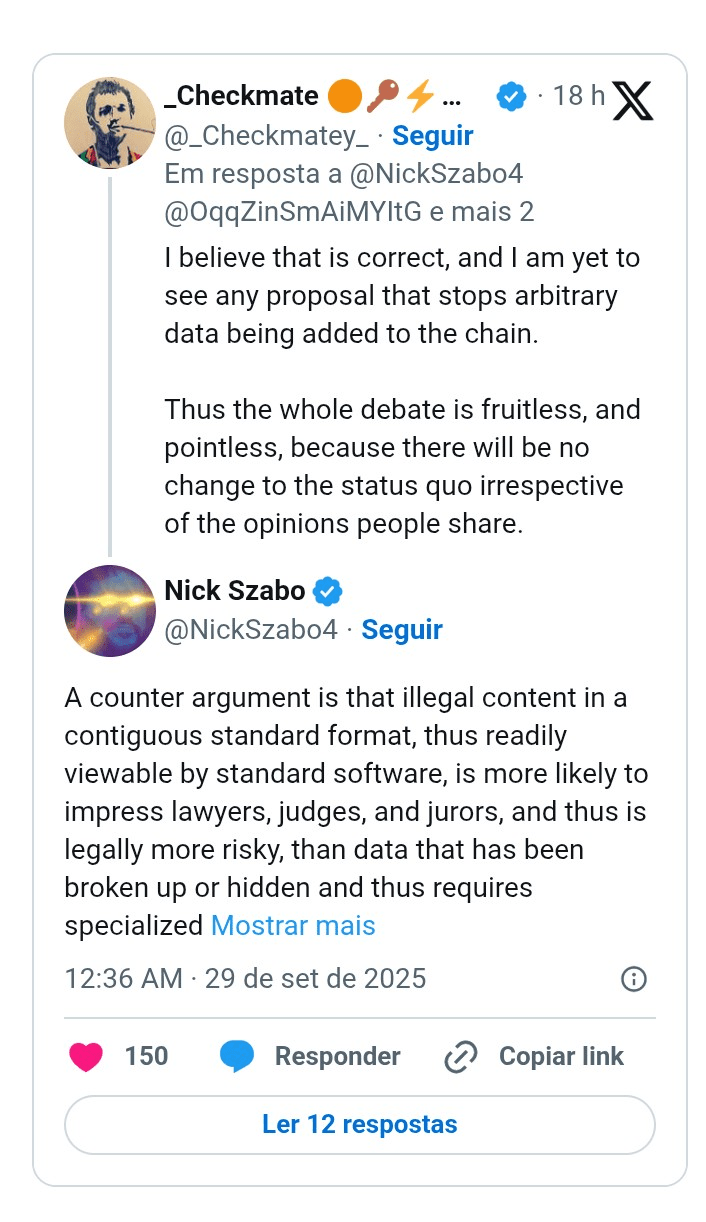
Nick Szabo, one of the most respected names in the cypherpunk movement and often pointed out as one of the 'fathers' of Bitcoin, reappeared on social media after years of silence and quickly attracted the spotlight of the community. In his return, he made strong criticisms of the so-called 'shitcoins' and commented on the dispute between Bitcoin Core and Knots.
A historical and influential figure in the crypto universe, Szabo has spoken out precisely at the moment when the update of Bitcoin Core to version 30 generates intense debate among developers and node operators. His absence had lasted almost five years.
In his statements, he warned of risks that, in his view, are being neglected. One of the central points was the expansion of the use of OP_RETURN, which would allow recording much larger volumes of data directly on the blockchain. Szabo highlighted that the measure could bring not only technical complications but also legal implications.
According to him, although miners can filter transactions via fees, node operators become more vulnerable, as they could be held accountable for storing illicit content in their systems. The developer also emphasized that fragmented or hard-to-reconstruct data poses a lower threat, but information recorded in a readable and standard format could be used legally against the network.

The dispute between Core and Knots, which had already been gaining momentum, was intensified by the announcement of the update. On one side, the Core developers argue that any valid transaction properly paid in fees should be accepted, betting on market logic to control abuses. On the other, Knots, maintained by developer Luke Dashjr, implements more restrictive filters and policies, rejecting transactions considered 'spam' or irrelevant.
This difference in vision has caused a significant migration of node operators to Knots, which already represents a relevant share of the network and raises fears of fragmentation.
For Szabo, this is not just a technical divergence, but an ideological dispute over what the identity of Bitcoin should be. On one side, the idea of an open network that accepts multiple uses, on the other, the defense of a strictly monetary network, protected against uses considered abusive.
In expressing his opinion, he made it clear that he considers it dangerous to expand the limits of the protocol unrestrictedly, especially in a scenario where the ecosystem is already suffering from an excess of projects without purpose or economic support.
Not by coincidence, in parallel to the criticisms of Core, Szabo returned to attack the 'shitcoins'. He reiterated his skepticism regarding speculative tokens and networks created without solid foundations, which in his view only produce noise and divert focus from what really matters: the preservation of the integrity and resilience of Bitcoin as decentralized infrastructure. The message was received as a call for discipline and collective responsibility at a decisive moment for the future of the network.
Nick Szabo's return to the center of the debate shows that, even after years of silence, his influence remains enormous. By questioning both the legal and technical risks of the Core update and the proliferation of tokens of little relevance, he revives a tone of caution that has long been absent in the community.
The outcome of the dispute between Core and Knots and the fate of version 30 of the software remain uncertain, but Szabo's intervention makes it clear that the decisions made now will have historical weight for the future of Bitcoin.


